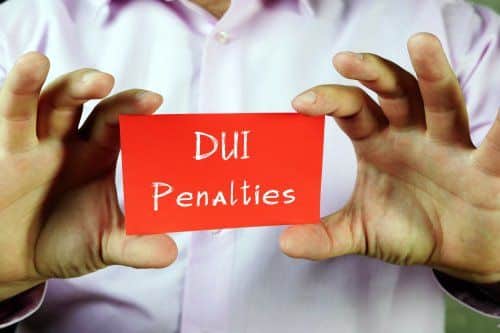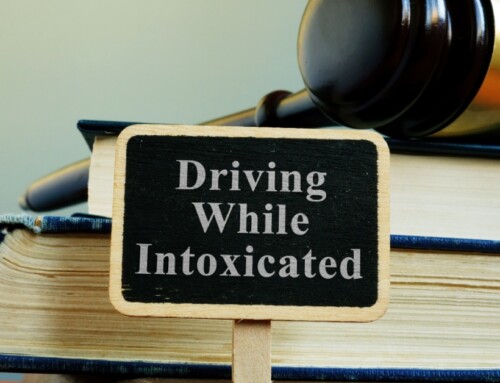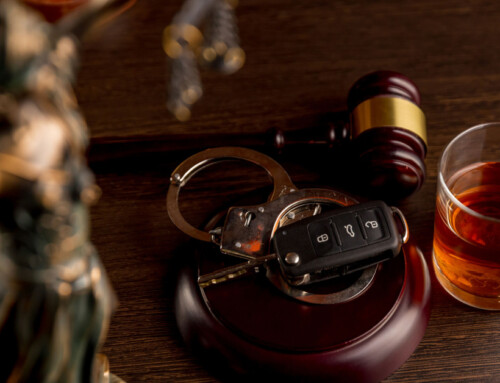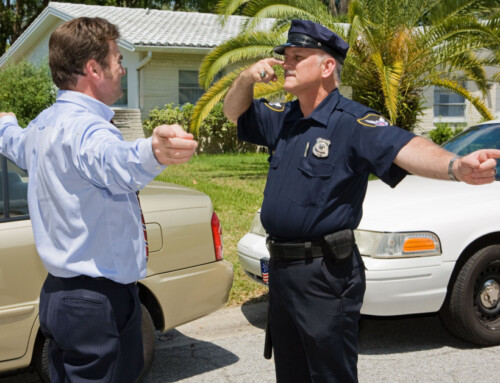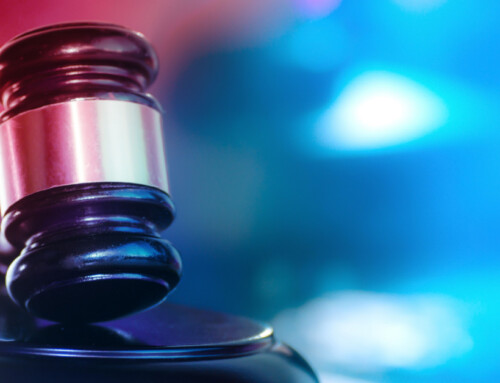Whether you live in South Carolina, go to school here, or visit the Charleston area from another state, getting a DUI in the Palmetto State is a serious matter. Drunk driving charges carry significant penalties under South Carolina law; and, if you ignore your situation, you will likely face the consequences for years to come.
We’ve discussed defenses to South Carolina drunk driving charges previously. To learn how you might be able to avoid a conviction (or at least reduce your sentence), you can read: How can I Fight My South Carolina DUAC Charge? This article covers why you need to fight your South Carolina DUI charge by all means available.
South Carolina DUI Penalties
In a South Carolina DUI case, the penalties you are facing depend on several different factors. The primary factors include: (i) whether you took the breathalyzer (or a blood or urine test), (ii) your blood alcohol concentration (BAC) reading, (iii) whether your case involves aggravating circumstances or additional charges, and (iv) your criminal record (if any).
1. Penalties for a Misdemeanor DUI
Most DUI charges in South Carolina involve misdemeanors, and most cases involve first-time offenders. However, even if you face a misdemeanor DUI charge as a first-time offender, you cannot expect to get off easy. For a first-time offense involving no BAC reading or a BAC of 0.08% to 0.10%, potential penalties include:
- Up to a $400 fine
- Up to $592 in additional assessments and surcharges
- 48 hours to 30 days of jail time (or community service in lieu of jail time)
- Six-month driver’s license suspension
The fines and jail (or community service) sentences increase for first-time offenders who have a BAC of 0.10% or above. For a BAC between 0.10% and 0.15%, potential penalties include a $500 fine and a minimum of 72 hours. For a BAC above 0.15%, potential penalties include a $1,000 fine and a minimum of 30 days.
South Carolina’s misdemeanor DUI penalties also increase for repeat offenders. If you have a DUI (or multiple DUIs) on your record, you could be at risk for the following:
- Second Offense: A fine of $2,100 to $5,100; $5,644.50 in assessments and surcharges; five days to one year of jail time (or community service); and a one-year driver’s license suspension.
- Third Offense: A fine of $3,800 to $6,300; $6,934.50 in assessments and surcharges; 60 days to three years of jail time; and a two-year driver’s license suspension.
- Fourth Offense: One to five years of imprisonment and permanent driver’s license revocation.
The penalties for repeat offenders also increase in cases involving a BAC of 0.10% or above. Additionally, for a third offense, the driver’s license suspension increases to four years if less than five years have passed since the first offense. If a third or subsequent offense occurs within ten years of the first offense, this can also result in vehicle confiscation.
2. Penalties for a Felony DUI
Suppose you are arrested for causing an accident resulting in great bodily injury or death while driving under the influence. In that case, you can face a felony DUI charge under South Carolina law. The potential penalties for a felony DUI are far greater than those in a misdemeanor DUI case.
For a felony DUI, the potential penalties vary depending on whether the accident results in great bodily injury or death. In cases involving great bodily injury, potential penalties include:
- A mandatory fine of $5,100 to $10,000
- $11,019.50 in assessments and surcharges
- 30 days to 15 years of imprisonment
In cases involving death, potential penalties include:
- A mandatory fine of $10,000 to $25,100
- $27,144.50 in assessments and surcharges
- One year to 25 years of imprisonment
3. Penalties for an Implied Consent Violation
When the police ask you to take a BAC test during a DUI stop, you are required to comply—as long as the police meet certain requirements. This is based on South Carolina’s “implied consent” law, which says that you automatically consent to a breath, blood, or urine test by virtue of driving on South Carolina’s public roads.
If you violate South Carolina’s implied consent law during your DUI stop, you can face additional charges as a result of your implied consent violation. This charge carries an automatic 90-day driver’s license suspension, which increases to 180 days if you have a prior alcohol-related conviction or suspension on your record within the past ten years.
4. Penalties for an Open Container Violation
If you have an open container in your vehicle (other than in your trunk or luggage compartment), you can face an additional charge for an open container violation as well. Under South Carolina law, open container violations carry up to a $100 fine and 30 days in jail.
Collateral Consequences of a South Carolina DUI
While South Carolina’s DUI penalties are substantial, they are just the tip of the iceberg regarding the consequences of a drunk driving conviction. Getting a DUI can have many long-term effects, and the financial costs can far exceed any fines, assessments, and surcharges you are required to pay in court. For example, in addition to the penalties listed above, a DUI conviction in South Carolina can also potentially lead to:
- Disciplinary action at work or school
- Loss of scholarships (including Palmetto Fellows, LIFE, and HOPE Scholarships)
- Loss of your professional license or commercial driver’s license (CDL)
- Loss of your security clearance
- Loss of your job and ineligibility for many job opportunities
- Loss of your right to vote
- Challenges with obtaining loans, financial assistance, and housing
Schedule a Free Consultation with a North Charleston DUI Lawyer
As you can see, there are many reasons to fight your South Carolina DUI charge. If you’ve been arrested, you must speak with a lawyer right away. To schedule a free and confidential consultation with North Charleston DUI lawyer Rad S. Deaton as soon as possible, call us at 843-225-5723 or tell us how we can reach you online now.

